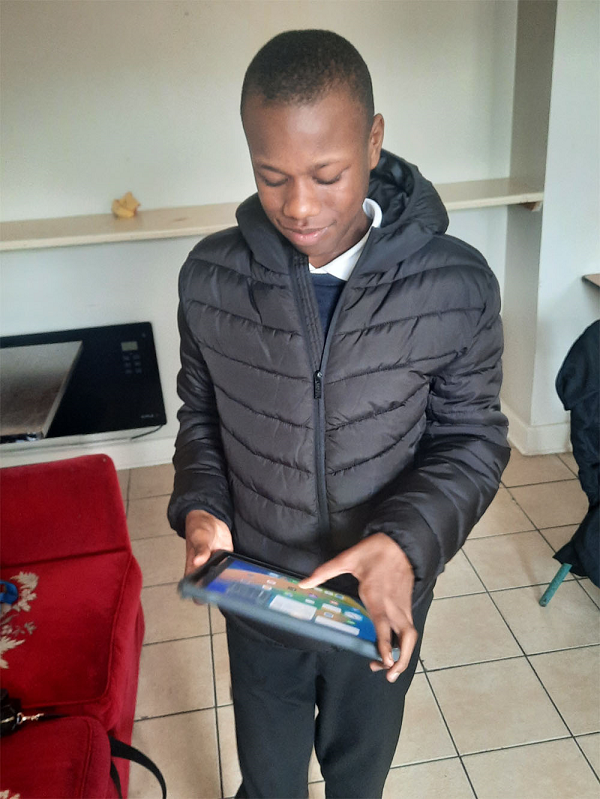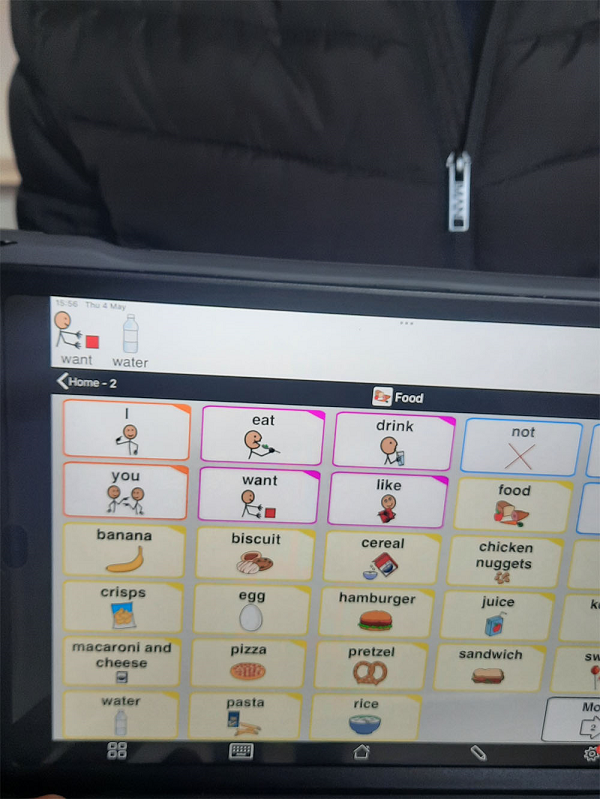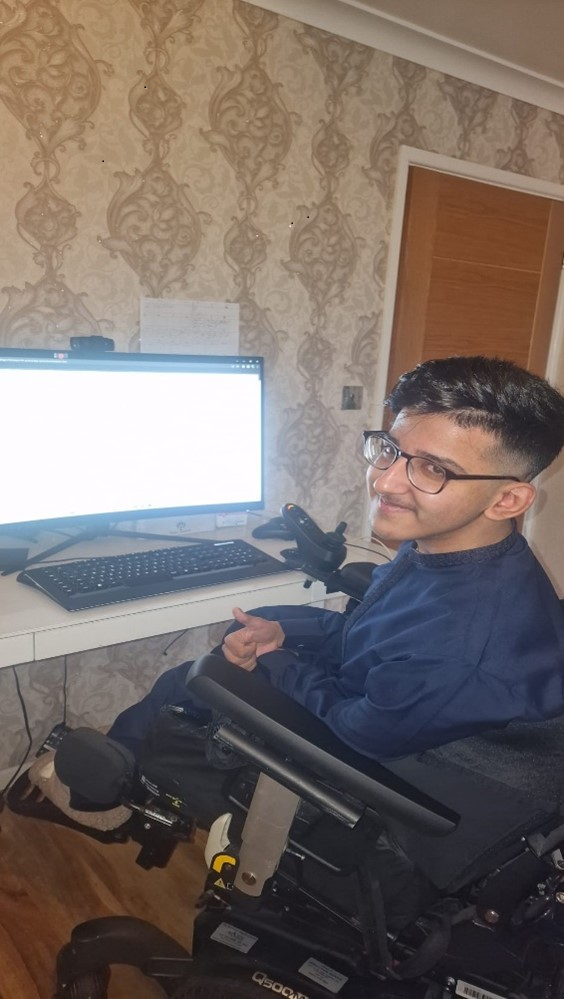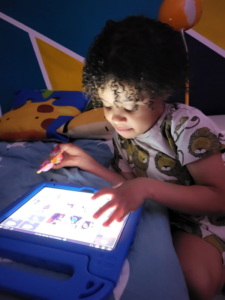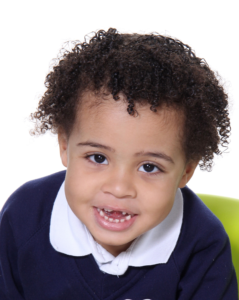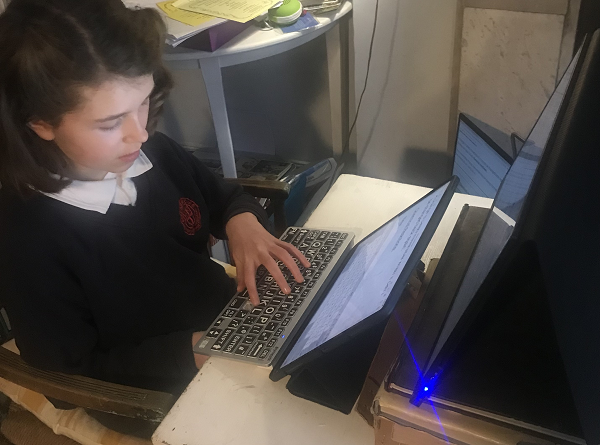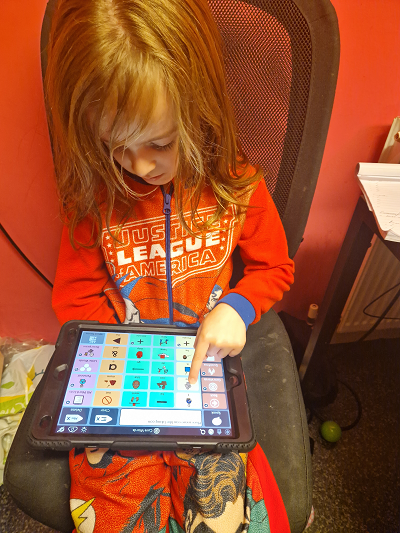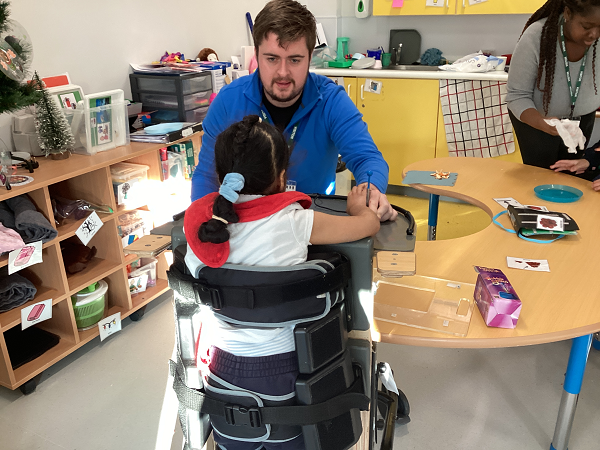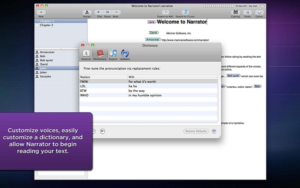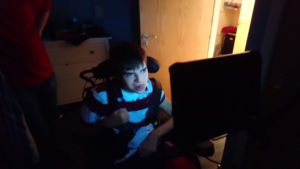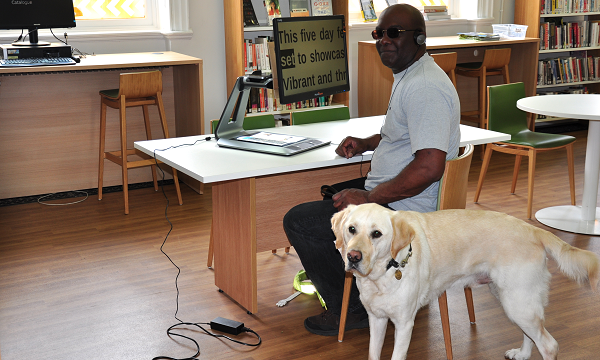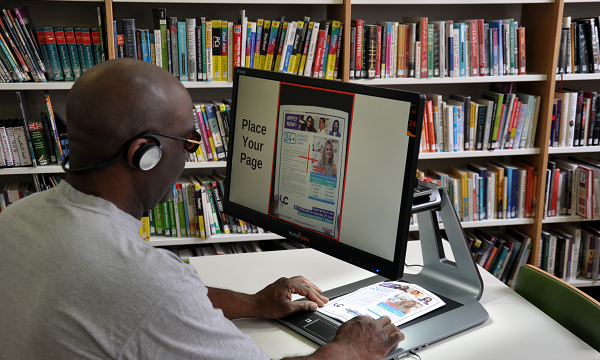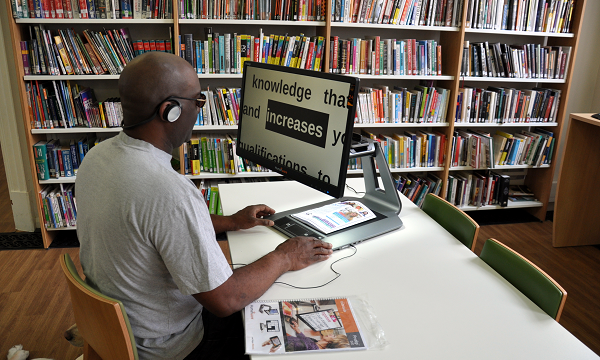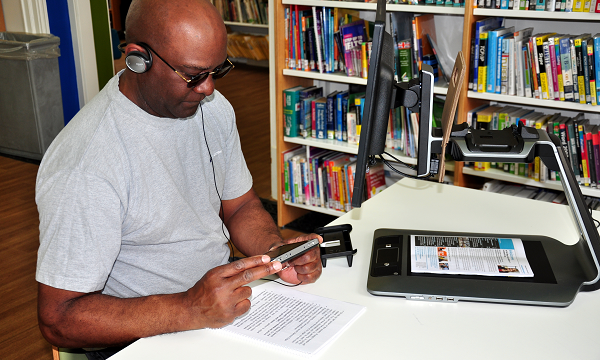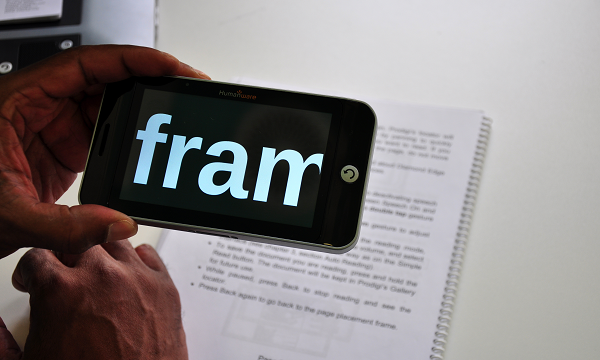These are the stories of the all the people we have been able to help. Please be inspired and make a donation so that we can continue with this great work and change even more lives!
Dean (May 2023)
Dean has profound dyslexia and, despite having a high IQ, his is still unable to read or write basic words. He spent several years working as a case study with Marjorie Lishman of the Dyslexia Institute, aiding in training teachers to recognise dyslexia among students back in the 1990s. Dean’s dyslexia has affected his daily life profoundly for his whole life, preventing him from acquiring qualifications and jobs, and ultimately affecting the trajectory of his life. This has kept him in manual work, despite having very strong engineering skills.
Up until recently Dean has been able to rely on his partner who, despite being physically disabled, was always paramount in supporting all management of life admin such as reading and assisting with bills and payments, making applications for benefits and all other written communication needs. Unfortunately, she suffered multiple strokes and a heart attack in 2018 and now, on top of her severe mobility issues, she is no longer able to realistically manage any paperwork.
As such, they are now struggling to manage the administrative side of supporting their household, often missing important information in letters and falling into arrears and debts with various bills. Dean has, in recent years, had quite a drop in self-worth, balancing being a primary caregiver and the isolation of that role, with further barriers to accessing his hobbies, such as engineering, carpentry, music history and philosophy.
His care practitioner advised that Dean have a text to speech C-Pen scanner which will enable him to independently read bills and letters, preventing missing important payment deadlines and meetings. It will also enable him to manage his partner’s medication by being able to read her prescriptions and allocating medications correctly at the correct times. Ultimately it will provide him with a better quality of life as a carer and in accessing literature that interests him for his hobbies.
Dean was awarded a grant to fund the C-Pen reader.
Carlito (March 2023)
Carlito is 12 years old. He is autistic with limited speech and learning difficulties. His understanding of language is far greater than his use of it and, at present, he can only express some of his wants and needs by using gestures, noises, eye contact and the odd short word. So he remains largely non-verbal.
Carlito attends a local Special Educational Needs school where he has had access to the school’s shared communicational device and with it he has begun to initiate conversations, respond to questions and indicate choices. Unfortunately, as this aid belongs to the school, he has limited use of it.
Carlito lives at home with his mother and has great support socially and emotionally from family and close friends. He does try to engage with others during play and social activities but it’s extremely hard work and frustrating for all concerned, especially for him and his mother knows that having a speech aid would transform his life.
The school’s Speech and Language Therapist has said that obtaining a device of his own would improve his independence, confidence, education and give him a far greater ability to participate and cope with life in general, all of which would be extremely beneficial to his overall health and wellbeing.
After trialling him on various devices she recommended that an iPad with Grid 3 software would be the most appropriate communicational device for all his current and foreseeable future needs.
Carlito was awarded a grant to partially fund the iPad with the Grid 3 software. The Sequal Trust provided the remaining funding .
Ali (March 2023)
Ali is 16 years old and has a diagnosis of Duchenne Muscular Dystrophy (DMD) – a condition which causes progressive muscle weakness leading to reduced mobility and functional abilities.
Ali uses a wheelchair and wears splints in school and, although he is able to communicate confidently, he finds it difficult to understand and register information. He needs to have information relayed to him in small chunks. His parents help him with all his care needs and household tasks, he is able to use a mobile phone, but cannot lift his arms.
School staff say that Ali has grown so much as he has progressed through school; he has a cheerful disposition, great personality, a lovely group of friends, he is confident and friendly with others. Writing essays, course work and exams are very stressful for him and writing directly onto paper and a laptop is very tiring as his hands get tired because of his condition. He prefers to use a laptop, but using the keyboard is a challenge as he is a slow typist, and this, coupled with a need to spell check frequently, slows him down. Using the keyboard makes the whole process of writing disjointed and very stressful and he often has to ask for help.
Ali has tried the Nuance Dragon Professional Individual Speech Recognition software and his mother said that he was able to write without getting tired and that he could be himself. He felt it was great because he could also edit what he had written without touching the keyboard. He said that he has great ideas in his head and with this he can actually write them down without anyone making judgments. He also wants to keep a diary about his condition, his life, feelings and thoughts and this will be such an easy way to do that privately. His mother says that she believes this software will make a world of difference for Ali as he is a bright young man and that it will give him the encouragement to carry on in life.
Ali was awarded a grant to fund the Dragon Software.
Message from Ali:
“A little bit about my condition I have Duchenne’s Muscular Dystrophy which is a muscle wasting condition. My hands get tired very easily and they can get strained, so I have to stop writing or ask a learner support to help me write.
My dad applied for funding from Janki Saye Foundation. This was for speak recognition software, that I could use when writing.
I had tested the software beforehand and found it to be really good, now that I actually have the software downloaded on my PC, I can honestly say it has saved my hands from getting really tired.
I can write, spell, add punctuation and change words around just by talking it through my microphone.
I will be going to college this coming year and know that I will be writing essays and doing lots of writing so this software will help me.
I also wanted to write about ME and how I feel, like a personal blog. This will be so good as I don’t have to rely on anyone and keep my notes personal.
Thank you Janki Saye Foundation“
Lewis (February 2023)
Lewis is 6 years old and is severely autistic. At present he is non-verbal and is unable to make his basic needs known, or share his feelings with his family and friends. This results in frustration which manifests as hitting, scratching and biting others. More recently, Lewis has begun to bite his hands to demonstrate his frustration at not being able to communicate his needs.
His mother said that Lewis is a kind boy who has demonstrated that he is keen to increase his interaction by communicating with his friends, family, teachers, and peers. He adores his 8 year old brother with whom he can only communicate with using cuddles.
Lewis’s Speech and Language Therapist has reported that Lewis has been trialing an iPad with Snap and Core app at school and has responded positively to it so far, smiling when he hears the app speak a message and aware that this is a way for him to communicate.
Since the technology that Lewis is using at school, cannot be taken home, his family are unable to replicate and reinforce the work Lewis is doing while he is at home. It is hoped that, in the long term, this technology will help Lewis to connect with people around him, make his needs known and alleviate the frustration that has, so far, resulted in Lewis harming himself and others.
Lewis was awarded a grant to fund the iPad and protective case.
Message from Lewis’ mum “Lewis is getting to grips with using his new iPad. Today he has used it to ask for a drink and a yogurt. He has also used his iPad to ask for his Grandad!!!“
“Please see a picture of Lewis and a picture of him using his iPad. Please feel free to share with your associates to communicate how grateful we all are and your input is helping Lewis express his needs.”
Lily (February 2023)
Lily is 10 years old. She is severely visually impaired and also has cerebral palsy and ASD. Having very little sight and only able to use one hand makes life extremely challenging and frustrating for her.
Her teacher reports that she uses a range of assistive technology at school to support her to access the curriculum. Her severe visual impairment makes it very difficult for her to access written curriculum material and to record her work. She finds it difficult to work independently and also finds the demands of the school curriculum tiring, as she has to work very hard to use the vision she has to access adapted materials. Lily finds completing homework tasks difficult as her school technology is not portable. She is not able to access materials in the same way at home as she does at school, and this hampers her independence and ability to complete tasks.
The school felt that Lily would benefit greatly from having an additional monitor to use with her iPad at home, so that she is able to enlarge homework tasks and curriculum material. This would enable her to work more independently and would support her to complete homework tasks now and over the coming years. She is academically capable but needs the support of assistive technology across all areas of the curriculum, both at home and at school.
Lily was awarded a grant to fund the large screen to attach to the iPad.
“Thank you Janki Saye Foundation for providing Lily with the amazing monitor that helps her, with her little eye-sight, to see her course work and read information on the internet, at the same time as working on her ipad.”
Lily says, “I love my monitor, because now I can see everything on the computer more easily when before, it was a strain for me.”
Jovan (February 2023)
Jovan is severely disabled as a result of a brain injury caused by a knife attack. He needs 24 hour carer support, is in a powered wheelchair, has muscle spasms and suffers from extreme fatigue. His communication is impaired. He is cognitively impaired and he suffers from regular seizures.
Jovan attends Headway East London (a charity day centre supporting people with brain injuries) one day a week and his music co-ordinator told us that he uses an iPad Pro and has become very proficient with a music making app (Garage Band).
He has created a large library of hip-hop songs over the last five years. Some of his music has been used on videos, at art exhibitions and he has collaborated with a poet and dancers for an event at the Barbican.
Jovan becoming increasingly frustrated by only being able to express himself artistically through music for one hour a week whilst at Headway and it would benefit him greatly if he had an iPad Pro of his own so he could continue with the music and also use other accessibility apps.
Jovan was awarded a grant to fund a refurbished iPad Pro.
Message from Jovan’s music co-ordinator:
“Here is the link to a video of Jovan receiving his iPad for him to make music and art at home. It will be a fantastic tool for him as it will allow him to develop is creative work when he is not at Headway. Thank you again for this, it will make such a huge difference to his life.”
Lleyton (November 2022)
Lleyton is almost 7 years old and has been diagnosed with non-verbal autism and also suspected ADHD.
His Speech and Language Therapist (SLT) told us:
“Lleyton is very determined to communicate his needs and feelings and does this through sounds, facial expressions and some signs. He uses a low tech communication PECS book and is able to make requests using this for food and toys. However, it is clear from Llyeton’s responses to adults that he understands more than he can communicate.
We have tried the TD Snap app with him and he has responded well, learning quickly to press ‘more’ when he wanted something and finding food pages by himself. He also was very interested in the feelings page and was looking at the adults to see their facial expressions when he pressed buttons such as ‘happy/sad’ and copying the facial expressions himself. Lleyton is not currently able to express how he feels using his PECS book and this will be very important for him to do as his behaviour can sometimes be challenging. His school have just provided him with an iPad to trial in school but it cannot go home with him unfortunately.
…..It would therefore be extremely beneficial for Lleyton to have a device at home to enable him to become more used to the app and to communicate much more fully with his family.”
Lleyton was awarded a grant to fund the iPad and the Tobii Dynavox Snap app.
Maryam (August 2022)
Maryam is 6 years old and has microcephaly. She is in a wheelchair although she can crawl. She understands some single words but does not have any verbal language. She can use her eyes and hands to point to things she wants. Her finger point is not accurate, but she can use her whole hand to indicate what she wants.
Maryam’s Speech and Language Therapist (SLT) said that she had been using a wobble switch in school successfully for the past few months after trialling other switches. She was able to activate this one well, unlike some of the others. The switch has a recorded message on it that says “I have something to say” in order for Maryam to indicate her needs. The adult can then guide Maryam to use her communication charts to tell us whether she wants ‘more/ to stop/ help/ something different’.
Maryam’s mother was very keen to have a wobble switch of her own so that she can build on developing her communication at home.
Maryam was awarded a grant request to fund the Wobble switch.

Maryam’s SLT says “Maryam is doing brilliantly! She is using her switch which is attached to a voice output device with the message ‘I have something to say’ which alerts an adult near her. She is then shown symbols to make a choice of what it is she might be trying to communicate e.g. choosing which snack she wants or telling us she wants more of something or that she’s finished. She is learning these abstract symbols well and is starting to eye point or reach to the one she wants to communicate.
But she is using the switch very easily and consistently now to alert people she has something to communicate which is fantastic for her independence.
Thanks very much again for your support”.
Steven (August 2022)
Steven suffered a stroke and was admitted to a brain injury and rehab centre. His Speech and Language Therapist (SLT) said that he presents severe expressive aphasia (difficulty using language), mild-moderate receptive aphasia (difficulty understanding language) and possible apraxia of speech (difficulty coordinating the muscles/motor patterns needed for speech). Steven is not able to make his wants and needs known or seek out information verbally, or gesturally, consistently. His cognition is intact and has not been affected by this stroke, so he is very aware of his difficulties.
Steven has been working on using the Alpha Core grid set, which has a core vocabulary grid and qwerty keyboard; he is able to learn stock phrases and repeat these and is highly motivated to practice (does so in his room independently). It is hoped the more familiar he gets with the layout of the grid, and his language skills continue to develop, he will be able to create novel sentences independently.
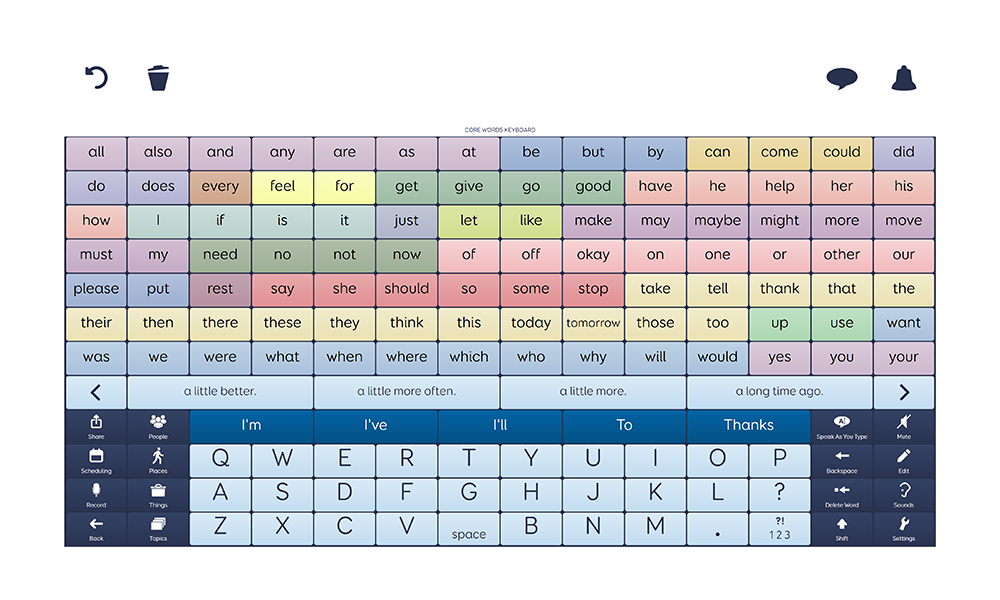
Steven had been using the unit’s iPad but needed one of his own to support his very limited communication when he leaves the rehab centre.
Steven was awarded a grant to fund the iPad and a protective case.
Steven’s SLT told us ” Steven’s wife commented on several occasions how amazing it was for Steven to have access to a device that allows him to have a voice and she wondered what people did before!
Functionally Steven was able to join in group games using the iPad (with the communication software funded by another charity), which had a huge impact on his wellbeing and allowed him to show us his competitive side! He was also able to use the iPad for self-directed therapy in between therapy sessions, which I think led to the huge improvement across his language outcomes; all the evidence for progress in aphasia states a very high number of hours of therapy is needed, and he was able to contribute to this himself, which I think is really empowering.
Thank you for the grant“.
Joshua (July 2022)
Joshua is 19 years old and has Cerebral Palsy. He is a full-time wheelchair user. He is unable to complete day to day tasks independently and requires full time support for all aspects of his life. Joshua has no controlled movements in his arms or legs and requires them to be strapped down to prevent injury.
Joshua has good verbal communication skills to express himself and is able to access assistive technology which gives him a sense of independence. He uses assistive tech at home to control his environment (turn the lights on/off), play music and control his television. In Joshua’s learning environment he relies on support to scribe for him or control a laptop to access research.
During his social time, Joshua needs support to play YouTube videos to show his friends. He began using Grid3 with voice activation during this academic year at college and the level of independence this gave him was significant. He was able to access the learning without full time support, conduct independent research and work/socialise more readily with his peers without support.
Unfortunately, due to his outdated technology, the device was no longer working which halted Joshua’s development. Having an iPad with Grid3, controlled by voice activation, would allow him to continue to develop his independence both in his learning environment but also in other areas of his life.
Joshua was awarded a grant to fund a new iPad.
Scarlett (November 2021)
Scarlett is 16 years old and was born with a unique chromosome re-arrangement that has resulted in profound and complex learning disabilities. She has minimal communication skills, sensory processing disorders, behavioural problems and she is on the autistic spectrum.
Scarlett’s father tells us that prioritising development of her communication skills have always been key in order to enhance her day to day life experiences.
The family have been supported by the local NHS Speech and Language Therapy department and, over the years, they have tried a range of communication techniques and basic communication aids.
In order to move Scarlett forward, they trialled the Smartbox Talk Pad communication aid with Grid 3 software. This 3 week trial proved extremely successful. Scarlett found the system very intuitive and she used the device intentionally by pressing buttons meaningfully and in context to communicate. She preferred using this device rather than the communication books she had been used to.
One of her teachers said “Scarlett has had lots of one on one on her Talk Pad and working on her communication. The iPad really seems to be opening up the world for her, not only as a communication aid but for social interaction. We observed students coming over to sit next to Scarlett at break time and they were using the device with her. Scarlett was really enjoying that peer interaction and it was great to watch her so happy with people of a similar age.”
After the trial, everyone felt that Scarlett would benefit from having her own Talk Pad 10. It would give her a voice and would enable her to have much wider interactions with her school peers, family and community.
The system is easy to set up and customise and can be remotely accessed by her family or school to quickly edit, maintain and develop. This will enable her to continually progress.
Scarlett was awarded a grant to fund the Talk Pad 10.
Here is an update from her father:
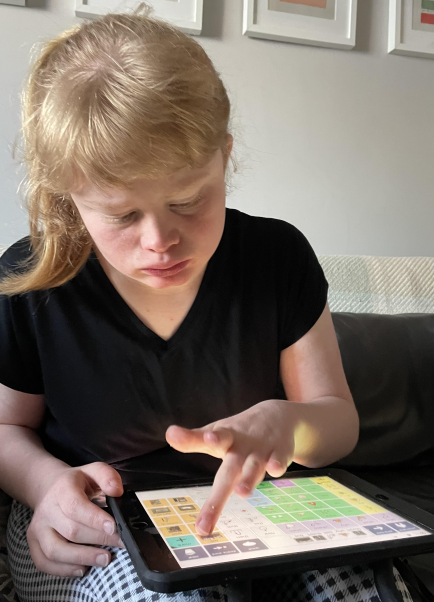
“Since Easter Scarlett has moved on from using the first symbol grid of her old paper based communication book to now using the much more extensive Smartbox Super Core 50 grid. Her new grid has been customised by us to include all the personally relevant and favourite symbols from her old communication book. Because the Super Core 50 grid has much more content, it allows us at home and school to extend modelling more varied language with Scarlett.”
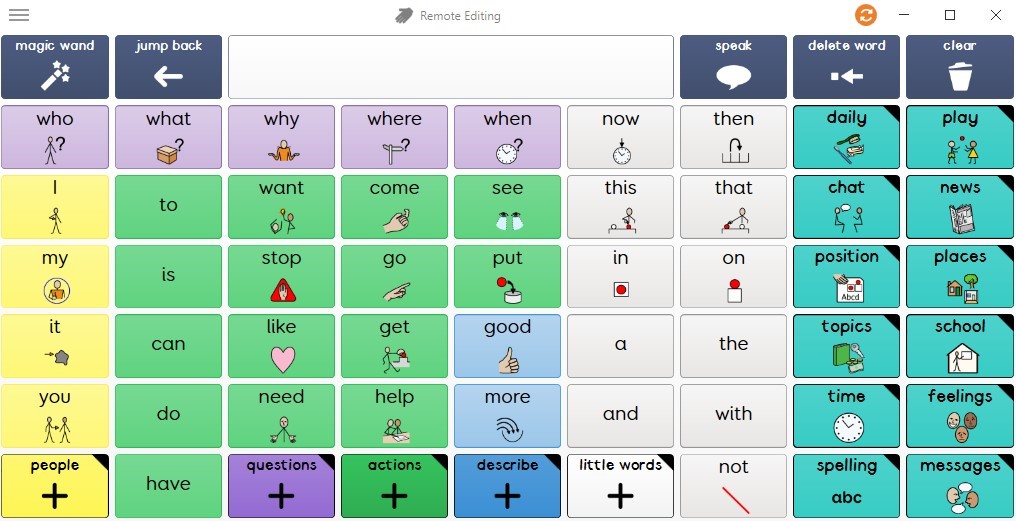
“School has been very good at incorporating her TalkPad in all her activities. The Speech and Language team have also been coming into class this term to support the class team in how best to model its use with Scarlett.”
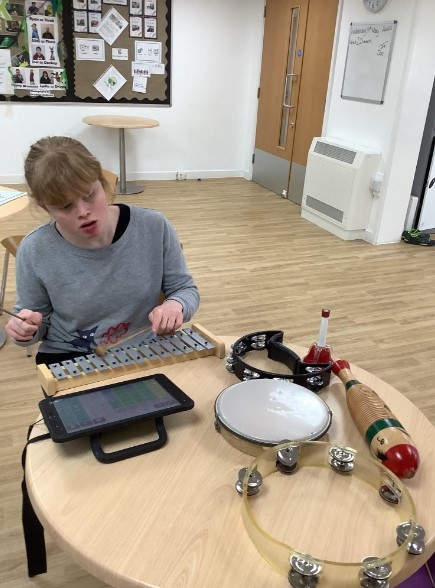
“Scarlett at school making musical instrument choices and being supported to use her TalkpPad to interact with her peers.”

“Scarlett is becoming much more confident in using the TalkPad. It has been transformative in opening up communication both at home and school with family and peers.”
Nathan (September 2021)
Nathan is a 9 year old who was diagnosed with significant speech delay at the age of 3. He has limited vocabulary and his mother uses visual aids to support him.
She recently used an app called Talk Tablet on a free trial basis and noticed that Nathan had been been making improvements in his receptive language and choices of words to responses.
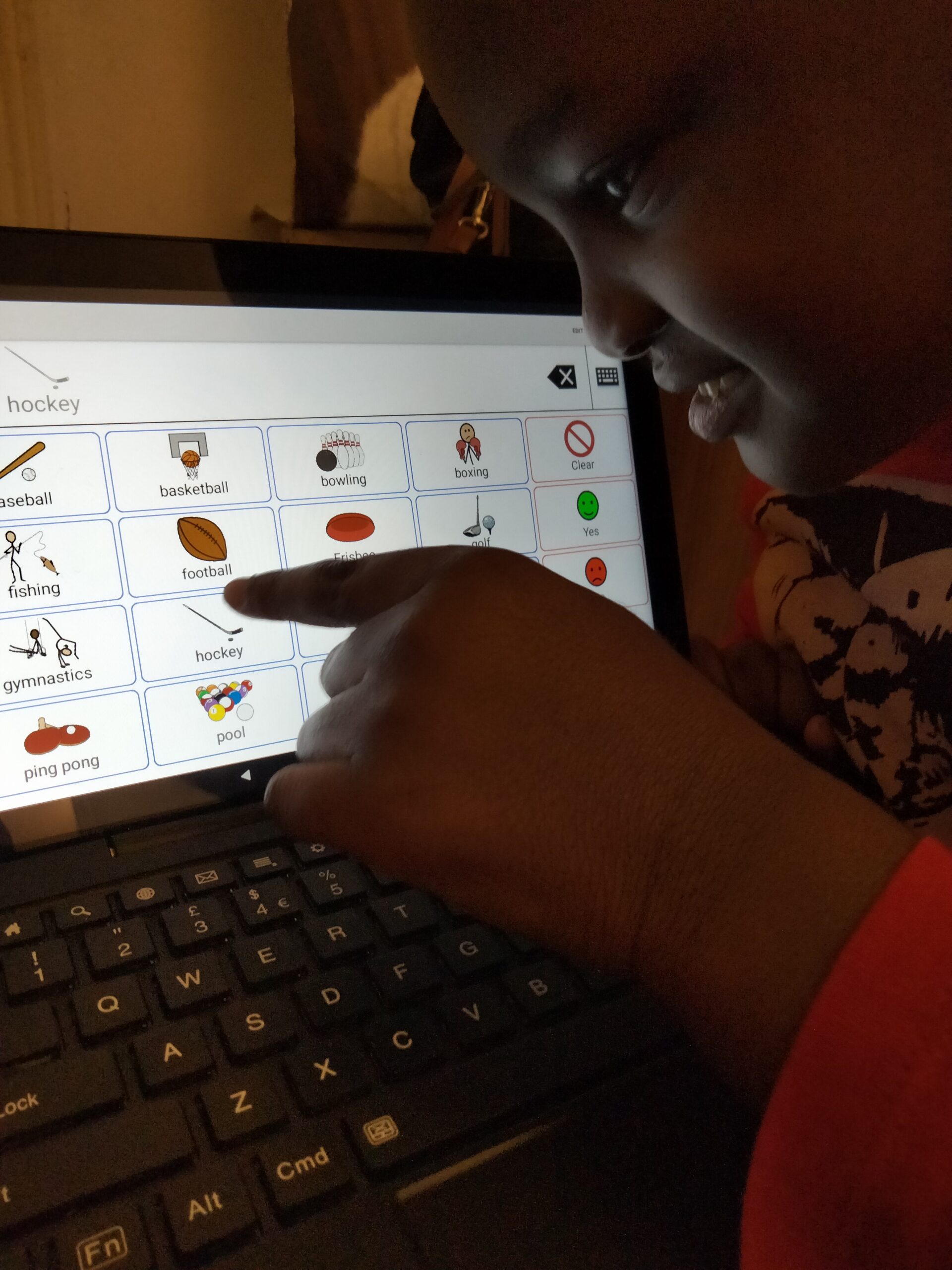
She wanted to purchase the app so that she could customise it in order to continue with his development and to set a target of words and phrases for him to achieve each week. She felt that this would make a huge difference to Nathan’s speech and overall well being.
Nathan was awarded a grant to fund the Talk Tablet.
His mother sent us this update: “It’s been more than a year since my son had his talk tablet and we’ve seen progress in his speech. His class teacher has also commented on his speech. My son uses longer sentences and his vocabulary has broadened . This has reduced his anxiety significantly because he’s now aware that people around him understand him.
With the Talk tablet my son is now able to communicate his needs. We’re still working on helping him understand and regulate his emotions. We’ve uploaded emotions vocabularies and with time I’m confident that he will understand what being “happy” or “upset ” means.
Children like my son are marginised by society because of their disability. Thanks to Jabki Saye Foundation , my son is making sturdy progress.”
Chaos & Calm (August 2021)
Chaos & Calm Community Interest Company (CIC) support families caring for children with disabilities with opportunities for learning, play, socialization, communication and general all-round support. They already run two weekly sensory play sessions for children aged 0-4.
At present they provide support to 21 families all of whom have a pre-school aged child with a disability.
All sessions are supported by a qualified special needs teacher and an early years portage specialist. During these sessions they provide a wide range of support and advice to families on a range of issues, but there is one almost constant topic and that is communication – this is an area where families feel greatly under supported but one that they all know is so vital to their child’s development and happiness.
The project manager believes it is vital that to allow families to experience first-hand the types of Assistive Augmentation Communication (AAC) strategies and access methods that are available to them and their child.
They are planning to set up sensory sessions to allow opportunities for families to see different AAC technology options that may be appropriate for their child and to have a go at using them in a safe, secure and friendly environment where they can ask questions and get support.
The technology required – Assessment Switch Kit, Blue2switch and an iPad with software such as Proloquo2go and Mychoicepad will allow families to explore all the options that are available to them to help develop their child’s communication skills whatever their needs. A large number of the children who attend the sessions have complex communication needs accompanied with physical disabilities. The wide range of switches within the assessment kit will enable them to ensure they can match each child with an appropriate access method no matter how limited their physical skills may be.
Other children in the group have the physical dexterity to operate a device such as an iPad, but do not have speech so they would like to use the iPad to allow families to explore the potential benefits that AAC voice generating software could offer.
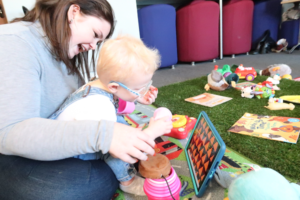

Chaos & Calm was awarded a grant to fund the Switch assessment kit and Blue2 switch, an iPad and the Proloquo2go license.
Lucy (June 2021)
Lucy is 7 years old and has Autism Spectrum Disorder, severe speech, language and communication difficulties and severe learning and sensory processing difficulties.
She needs constant help, encouragement and supervision and often gets upset because she is unable to consistently express her feelings, want and needs. She often gets very overwhelmed when she is out and, as such, the family have become very isolated.
The family do a lot of adult led activities with her and they also follow a Speech and Language Therapy (SALT) program.
Lucy has been using the Proloquo2go Alternative and Augmentative and Communication (AAC) app on an iPad and has shown exceptional progress. She is able to express a range of vocabulary items and her therapist says ““Lucy’s emotional wellbeing significantly impacts her communication skills; when Lucy is happy her frequency of spoken word increases, she appears more receptive to spoken language, is able to use spontaneous language meaningfully as well as increasing her frequency of self talk during play….. Positively Lucy has been requesting ‘cuddle’ during times of sadness as a comfort. Furthermore Lucy has recently begun to assert her independence through protesting as well as expressing a determined desire when attempting to dress herself”.
In order for Lucy to continue her development and further her communication, she needed an iPad to run the Prologuo2go app.
Lucy was awarded a grant to fund the iPad.
Here is an update from Lucy’s family: “We are very grateful for the generous donation of Lucy’s iPad. Lucy is eight years old, she has got complex communication needs and severe learning disability, she understands and says only simple words.
Lucy uses the donated iPad all the time, she has got her communication app Proloquo2go on it. The app helps her to communicate with us (express her wants and needs, her emotions and pains). Lucy and her parents use the iPad together when they read books, do learning activities and storysharing.
Thank you very much for Lucy’s iPad, we really appreciate your generosity and kindness!”
Stratton Primary School (April 2021)
Stratton Primary School is a Special Education Needs and Disabilities (SEND) school.
Two children were assessed by Tech Ability, who provided some suggestions as to assistive technology that would help support the pupil’s that were assessed as well as other pupils with similar profiles.
The school had been fortunate to receive devices and connectivity support from the Government during the periods of lockdown and remote learning, however this has been in the form of laptops or Chromebooks. The school felt they could help their children make significant progress if they had access to more assistive technology to compliment these devices.
They wanted to purchase headsets for individual children with cognition and learning difficulties to be able to dictate their sentences and hear the text read back. And it was also recommended that they have a range of different key board styles for children who find it difficult to local the keys on a conventional keyboard.
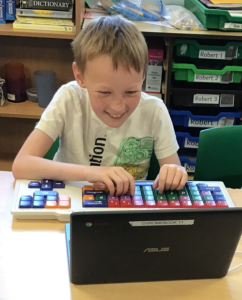
Also they hoped to purchase Clicker which has been recommended as a resource that would help the children with their independence and success with writing.
Stratton School was awarded a grant to fund 30 headsets, 10 special keyboards and a 3 year subscription of the Clicker app for 10 devices .
Mia (February 2021)
Mia is almost 10 years old. She has Tuberous Sclerosis and epilepsy. She is non-verbal and her family and teachers having been using a basic iPad app to communicate with her but she finds it frustrating as she is not always able to communicate her needs and preferences.
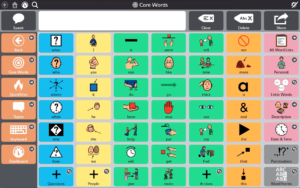
Her Speech and Language Therapist has been using a more advanced app called Snap Core First app which runs on an iPad and Mia has responded very well. She has been set up with some core words and she understands the cause and effect of these words – such as Stop and More!
Mia’s mother was very keen for Mia to have access to an iPad with this software at home, so that she could further develop her communication skills and enable her to better interact with her family.
Mia was awarded a grant to fund an iPad with the Snap Core First app.
Emaan (February 2021)
Emaan is 9 years old. She has lissencephaly and global developmental delay. She is wheelchair bound, with limited movement of her arms and she is non-verbal. She expresses herself through facial expressions and sounds.
Emaan had been using some low tech communication tools such as symbols and charts to help her communicate, but these all relied on assistance from others.
She then trialled an EyeGaze device and, using her eyes, she was able to play games and develop some skills. Her Speech and Language Therapist felt that if Emaan had full time access to this device, she would be able to develop some independent communication to express her needs, thoughts and wants.
It would be incredibly important for her in the future to help her become an independent communicator.
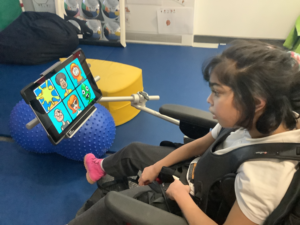
Emaan was awarded a grant towards the cost of an EyeGaze device. (Another charity has agreed to fund the remaining cost)
Ian (February 2021)
Ian is 40 years old. He has been registered blind since 2013 as a result of a genetic condition called Leber’s Hereditary Optic Neuropathy and he also has MS.
He is unable to read text at all, even with magnification and his vision is very blurred and out of focus. His MS impacts his mobility, and the combined effects of his conditions affect his ability to get out and about independently and also affect his ability to read, socialise, recognise people and cook.
He lives with his wife who helps him but he is trying to achieve as much independence as he can.
When Ian lost his sight he felt that he wouldn’t be able to use a computer again and, for a couple years, he didn’t even try as he could see the screen and keyboard. Then, 2 years ago, he engaged with the services of sight loss charities and he met other visually impaired people who made him aware of technologies that could help him.
Now he can carry out some tasks using a smartphone with voice activated services, but he wants to improve his skills and knowledge and complete some online courses that will enable him to get back into work. He had previously been working in a warehouse but this became difficult due to his mobility problems.
He doesn’t know if his goal is realistic, but his support worker from the Sight Loss Association says that he has been doing some voluntary work and feels that he has a lot to offer.
Ian has tried using a laptop with the Narrator software and this has made it possible for him to access and read online documents and websites etc. If he had a laptop with this software at home, he could work towards his goal and could also complete tasks such as online shopping and banking.
Ian was awarded a grant to fund the Narrator software.
Terry (December 2020)
Terry is 33 years old. He has autism and has difficulties communicating on all levels: reading, writing and social relationships. He struggles with completing tasks and with all things financial – he requires constant supervision to carry out these tasks.

Terry had a short trial of the C-Reader (text to speech scanner) and during this time he was able to read labels of items that he was cooking for dinner and he was able to prepare his meal without supervision. He used the pen to read birthday cards from his family and to read the local newsletter. He loves comics and he was able to read these unaided.
Terry’s Housing Support Worker and his mum could see that having the C-Pen would provide him with the independence to do things for himself without constant supervision. It would give him confidence in his abilities to do things for himself and to enjoy his hobbies.
Terry was awarded a grant to fund the C-Pen
Andrew (December 2020)
Andrew is 36 years old. He has severe spinal and brain injury, and is now a tetraplegic. He is currently in hospital but due to return to a new home soon. He will never recover, which means he will need care staff to help him with every day basic needs.
He can use his hands but has difficulty with a keyboard. But he is able to use a tablet. With a tablet he can control lights, tv, heating etc which means he will be less dependent on care staff and he will also be able to keep in touch with family and friends.
Andrew wants to be able to work again and give something back to the community. He hopes to start work in graphic design and advertising as soon as possible. He is currently using a very basic tablet, but it lacks the functionality he needs to do his work and to install the apps that will provide him with more independence.
Andrew was awarded a grant to fund an iPad Pro.
Message from Andrew:
To the Janki Saye Foundation.
I would just like to say a big Thank you to all the people working and supporting your charity.I was really grateful to receive a grant for an apple 12.9 pro with a built in possum which can control everything electric in your home.I am a complete tetraplygic and wheelchair user and have been for the last ten years.I struggle to use a normal keyboard but the tablet keyboard is really easy to use.There’s also a great deal of applications available to do art,graphics and writing.This means when I leave hospital I can work from home,stay connected and control my flat all from a tablet.I would not of been able to afford this at the time of being in hospital.So am very grateful to the Janki Saye foundation.
Regards Andrew
Sent from my iPad
Livability Nash College (November 2020)
Livability is a charity that supports people with disabilities and helps them connect with their communities.
Nash College, which is part of the Livability family of services, is a specialist further education college catering for students with a range of Special Educational Needs and Disabilities (SEND).
Their approach is to place particular emphasis on personalised learning, facilitating a range of communication needs and supporting students in the community and with future vocational opportunities.
The college identified the need for assistive technology as an important tool to help the students expand their communication skills and express themselves more independently.
As a starting point, they chose the Skyle iPad Pro device which would enable the students to control the iPad completely with their eyes, providing them with access to a wide range of applications designed to assist and augment communication. This could support up to 30 students.
Livability approached JSF to see if there was an opportunity to collaborate on this project. We welcomed this opportunity to help these young people on their path to lead more independent and fulfilling lives.
Livability Nash College was awarded a grant to fund the Skyle and iPad Pro.
Read more about this exciting news on the Livability website
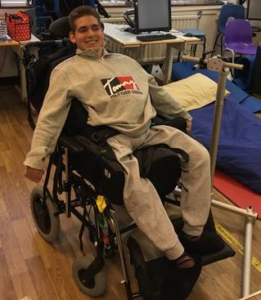
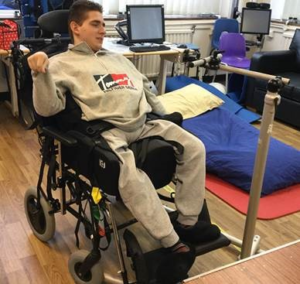
Message from Nash College: “Allow me to introduce Matthew. Shown here admiring the new stand we ‘ll be using for the Skyle eye-gaze.
Although he’s been enrolled for a while, Matthew has just arrived at college this week and is settling into life here with his new class-mates. We are getting to know him and have planned assessments for next term when we can begin trials with the new Skyle.
Matthew has previously experimented with eye-gaze technology and says he is looking forward to trying it again to support his studies, develop his independence and improve his communication”.
Aiden and Ellis (June 2020)
Ellis is 11 years old. He has severe visual impairments, global developmental delay and hydrocephalus for which he has undergone several brain surgeries (shunt revisions).
Due to his lack of sight, Ellis’s major challenges are his ability to access information and to read and engage with the world as compared to other children his age.
He has used a Macbook with voice over software to great effect and his mother felt that, if he were to have one at home, it would help to advance his education and help him become more independent. The accessibility features would enable him to do his schoolwork and keep up with his classmates.
Ellis was awarded a grant to fund a Macbook Air.
Aiden is 5 years old and, like his brother Ellis, he also has hydrocephalus and has already had 5 shunt revisions. He also has autism and sensory impairments.
Aiden struggles with every day interactions and his major challenges are dealing with new environments, new people and unfamiliar routines. At school he has demonstrated great skills with technology and he has used an iPad with special apps recommended by his pediatrician. It has helped him learn and play in a way that he finds engaging.
Based on this, his mother and the pediatrician felt that if Aiden had his own iPad set up specifically for his needs, it would help him with his home projects and provide him with opportunities to learn new skills and better interact with those around him.
Aiden was awarded a grant to fund an iPad Air
Michael (April 2020)
Michael is 27 years and registered blind. He had been using a Macbook Pro since university which then broke down, beyond repair.
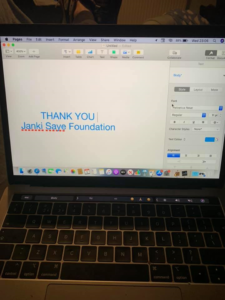
He said that not having access to this device has made him realise how much he relies on this technology with voice over software and dictation capabilities.
It enables him to access email, use the internet for access to educational resources and online advice and guidance and to keep in touch with family and friends using social media.
Michael was awarded a grant to fund a new Macbook Pro.
Message from Michael “Absolutely amazing foundation…so kind and helpful even with lots of questions!!! The support and help you guys provide is indescribable, the gift of independence you provide is beautiful and I thank/-you whole heartedly! Mike”
Wayne (March 2020)
An adult who has been registered blind since 2011 and also has type 1 diabetes. He has also had pancreas and kidney transplants.
Wayne relies on a guide dog who can help him to follow practiced routes and he struggles to carry out daily tasks such as cooking, reading, shopping, choosing clothes, taking his medication, recognising people, reading body language and social cues, and paying for things.
Wayne lives on his own and wanted to be as independent as he can. He has some daily living equipment that helps with making drinks and some meals but he still he has to rely on family, particularly his elderly parents and he regularly has to video call them to ask them to identify things for him.
Wayne trialled the Orcam MyEye ( a wearable text to speech reading device), and he felt that it helped with navigation, reading street signs, reading shop signs and signs at the train or bus station. It also helped with shopping, as the device can read labels and barcodes. Having the Orcam at home also helps with reading cooking instruction on packets etc. The device also helps with facial recognition when with family and friends.
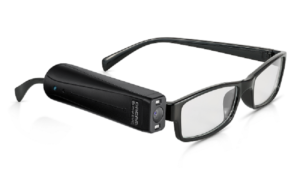
Wayne and his support worker felt that the Orcam would have a big impact on his independence and his confidence and it would make him less reliant on others. It would also help to provide his parents with some respite as they get older. He managed to save up a significant amount to help fund the device.
Wayne was awarded a grant to fund the remaining cost of the Orcam Eye.
Wayne sent us this message “… you recently you gave me a grant to help me buy a life changing device and I would just like to say I received it yesterday and already it’s made a massive difference as I can be my own medication boxes also my own post . I’m just have a so grateful you were able to do this to help me with my future so thanks again for everything I really do appreciate it”
Louis (November 2019)
Louis is 9 years old and has Downs Syndrome. He has very delayed motor skills and finds it difficult to form and write letters and numbers. He has a short attention span and limited verbal communication. It is very difficult for people who do not know Louis to understand what he trying to say.
Louis has found it hard to operate a traditional computer, even with a special mouse. He has specialist support from a centre for children with autism and they lent him an iPad. This helped his motivation and really helped to hold his attention and enhance his learning experience.
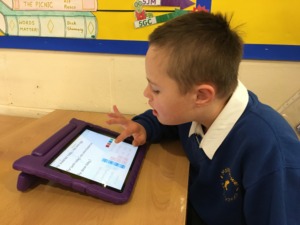
Having his own iPad with the Clicker Connect app, as recommended by his Speech and Language Therapist, which Louis can use at school and at home, would enable him to express himself and become an independent learner across all subjects. He would be able to form his own sentences which will help to improve his level of communication and give him more confidence.
Louis was awarded a grant to fund the iPad and the Clicker Connect app.
Stephen (October 2019)
Stephen suffered a stroke in 2014. He was in hospital for 4.5 months, was paralysed on the right side, lost his speech and had no understanding of even the simplest of instructions.
5 years later he still receives therapy but has made remarkable progress. Despite having no speech or understanding for 18 months, he is now able to able to work with the minimal help on pronunciation and reading. Since accessing the speech programs set up by his Speech and Language Therapists, his vocabulary has greatly improved.
While he is totally reliant on his wife for all basic aspects of living, he continues to work hard on his recovery.
The old laptop that he had been using completely stopped functioning and could not be repaired. So in order to be able to continue with his reading and practice his speech, Stephen needed a new laptop, ideally with a touchscreen.
His wife says the fact that she can even consider this type of technology is remarkable given the severity of the stroke. Recovery is very very slow, but Stephen was so determined right from the very first day and she has promised to give him every chance so that he can get as well as he possible can.
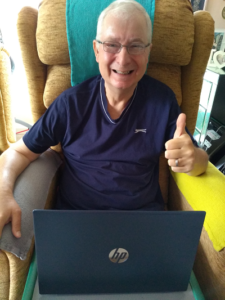
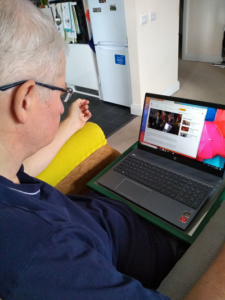
Stephen was awarded a grant to fund the laptop.
His wife sent us this message “Thank you so very much….I honestly can’t thank you enough for helping us with this. What a wonderful gift you have given my husband. Thank you for putting that smile on my husband’s face”
William (October 2019)
William is 15 years old. He has Autistic Spectrum Disorder and learning difficulties. He is non-verbal and mainly communicates using behaviour and gestures. He is able to understand much more than he is able to communicate which leads to high levels of frustration for him and those trying to interact with him.
William was assessed at school by his Speech and Language Therapist and has been accessing an iPad with the Clicker Communication app at the school since March 2018. While he has made good progress at school he is unable to communicate his needs at home.
It had not been possible for William to meet targets set for him outside of the school setting without having access to an iPad at home so he was put forward for a trial with a loaned device for a 2-week period during the summer break. After 2 weeks, William had managed to meet his targets and his mother reported that he was able to ask her fo specific things without her having to guess.
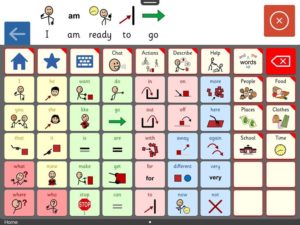
Next year, when he is 16, William will have to leave this school and will no longer have access to the iPad and communications software. Having a device of his own would further support William’s independence as he gets older. Without this he is unable to communicate leaving him socially isolated which obviously impacts on his quality of life.
William was awarded a grant to fund the iPad mini, and the Clicker Communications app.
Iziah (September 2019)
Iziah is 16 years old. He is autistic and has severe learning difficulties. He is non-verbal and finds it difficult to get his message across to make requests and communicate his basic needs without visual support.
Iziah attended a special school is Hackney where he had been using the Clicker Communication app on an iPad mini. His Speech and Language Therapist found that he demonstrated a great aptitude with the Clicker app and was able to generate requests and sentences. She observed that he was becoming increasingly independent.

As Iziah is now 16, he will be going to a new school which does not provide assistive technology. He would benefit from having his own iPad mini with the communications software which will enable him to have a voice throughout the day at his new school, at home and in the community.
Again, this would give him the tools to further develop and improve his quality of life
Iziah was awarded a grant to fund the iPad mini, a protective case and the Clicker Communications app.
Ifti (May 2019)
Ifti is 16 years old. He is autistic and has severe learning difficulties. He is non-verbal and finds it difficult to get his message across to make requests and communicate his basic needs without visual support.
When Ifti is in the community or with less familiar adults, he is unable to communicate with them. He tries to communicate using eye contact and gestures, but is unable to make himself understood.
Ifti attends as special school where he has been using the Picture Exchange Communications System (PECS) and, more recently, the Clicker Communications app on an iPad mini. His Speech and Language Therapist found that he responded well to this app and has been gradually building up a vocabulary and forming short sentences.

It was felt that, if Ifti were to have access to the iPad mini with the Clicker app at all times, he would have a voice throughout the day to communicate with his family and others in the community. It would build up his confidence, improve his quality of life and allow him to continue his development when he leaves this school in September to go to a new school. The new school will not have assistive technology.
Ifti was awarded a grant to fund the iPad and the Clicker Communications app.
Sharon (March 2019)
Sharon is an adult with a learning disability and is unable to read or write. She also suffers from anxiety and depression. Sharon relies on her father to help her manage her correspondence and affairs.
Unfortunately her father has Alzheimer’s and he is really struggling. He is extremely concerned that she will not be able to manage when he can longer support her as there is no one else who can help her.

An Independent Living Co-Ordinator assisted Sharon in making an application for a grant to fund a C-Pen Reader. This is a scanning pen which reads text out loud or discreetly through earphones. It has a built in English dictionary so word definitions are only a button press away.
The C-Pen would give Sharon some independence and reduce the risks of a vulnerable lady being exploited when her father can no longer help her.
Sharon was awarded a grant to fund the C-Pen Reader.
Joseph (November 2018)
Joseph is 24 years old and suffered a Traumatic Brain Injury after being hit by a car last year.
He is now severely disabled and unable to speak. He requires a wheelchair and assistance with all aspects of his daily life and has been in a hospital rehabilitation unit for the past few months.

Joseph’s Speech and Language Therapist (SaLT) said that he was able to type out sentences on his iPad to communicate his basic wants and needs, but he found the text too small and struggled. He then had a free trial with an iPad using the Predicatable app which he was able to use functionally to engage in conversation with people both familiar and unfamiliar to him.
His SaLT felt that if he had access to this app on a permanent basis, it would help improve his communication and his overall well being.
Joseph was awarded a grant to fund the Predictable app.
David (October 2018)
David is 40 years old and worked as a chef from the age of 18 until shortly after his 38th birthday when, as a result of glaucoma, he lost much of his vison. He struggled to keep going but his vision deteriorated and he is now registered blind.
David has had to give up the job he loved but does not want the experience over the last 2 years to defeat him. He wanted to challenge himself to do something else and, since he as been interested in Accounts, he took a Business and Administration course which he passed and is now eligible to study for an Accounting qualification.
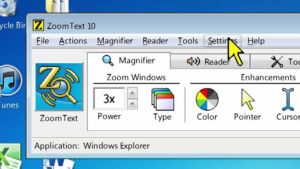
In order to continue with these studies, David needed a laptop with office applications and Zoomtext magnification software. This would also help him at home and in the future when he finds employment.
David was awarded a grant to fund the laptop, applications and Zoomtext software.
Russell (July 2018)
Russell is 4 years old. He is autistic and has global developmental delay. He is completely non-verbal with limited means of communication. Because he is unable to make himself understood, he becomes very distressed and upset.
His mother wanted Russell to have an iPad with the Grid Pad PECS application to help him communicate. He has used it on a friend’s iPad and he was able to create a sentence for the first time by pressing the relevant buttons. He said “I want crisps” and his face lit up when he heard the voice over saying it out loud!
Till now, Russell and his mum have been using the non-electronic version of PECS which is basically a system using pictures and symbols with Velcro stickers and a board, but they have found this very frustrating as it takes so long and these pictures and symbols have become damaged over time.
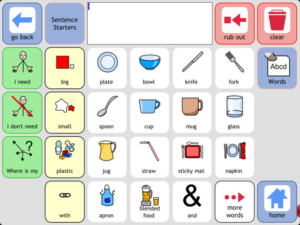
Also, since the iPad is small and discreet, it will easier for them to use it on the move and enable Russell to communicate with others. His mum felt that having the iPad with the Grid app will reduce his distress and create a sense of achievement when he can put together a sentence and be understood.
Russell was awarded a grant to fund the Grid Pad application.
Eliza (July 2018)
Eliza is 7 years old. She has an underdeveloped cerebellum and microcephaly which means that she is not able to use her hands, so needs help with every day care and she is also non-verbal.
Eliza attends Eye Gaze sessions twice a week at her school and is able to use it. She understands the concept of it and is learning to use the Grid 3 communications program.
Since it is only two 20 minute sessions per week, she is unable to practice and improve her learning and Eliza’s parents felt that, if she had the system at home, they would be able to teach her to use it every day. She would be able to choose her favourite games and then start building up her vocabulary and symbols so she can tell her parents what she thinking, how she feels and what she needs.
Eliza was awarded a grant to fund the EyeGaze Grid 3 application which can run on a laptop.

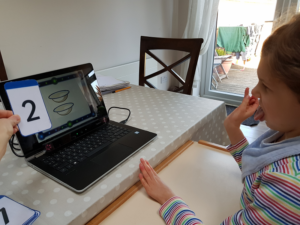
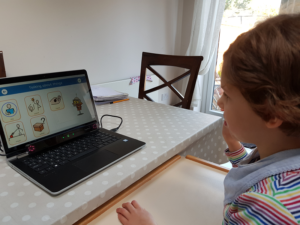
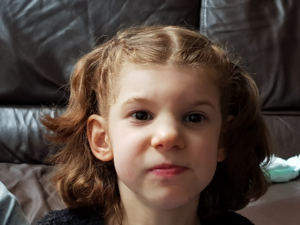
Eliza’s mum sent us this message:
“Eliza really enjoys using her EyeGaze and she is so pleased that she can tell us something then see our reaction to what she is saying. She is actually a bit cheeky by choosing words that would make us laugh together sometimes.
We are very grateful that you helped us. Eliza is very happy and me too. I can teach her how to communicate with us and it’s the best thing.
Lots of love, Eliza and her family”
Laura (May 2018)
Laura was born with complete bilateral blindness. She had to learn Braille when she was very young and, whenever possible, would use technology to help keep up with her studies and to read, which she loves.
She has a white cane and a guide dog, but craves more independence. She wants to be able to read train and bus timetables etc. when moving around so that she doesn’t have to rely on family and friends to provide so much support.
She is studying to become a therapist and will soon graduate. So far she has managed to do her course work using a computer and having family or colleagues read information for her.
In order for Laura to progress, she felt that an iPad which has Voice Over functionality, would help with her work, enabling her to access important information, as well as carrying out research and sending emails to colleagues. And since the iPad is small enough, she can carry it around with her to help her while she is out and about.
Laura was awarded a grant to fund an iPad.
Craig (April 2018)
Craig is 18 years old. He has a profound learning disability, motor and sensory skill problems, cortical visual impairment and symptomatic epilepsy. He is mostly wheelchair bound and requires 24 hour support for all aspects of his personal care and basic needs. Craig has limited ability to make choices.
In his final year at school, Craig began a period of assessment using the EyeGaze device with specialised software. Using his eyes to control this device, Craig was able to participate in a number of activities and he demonstrated his understanding of cause and effect.
Now he has left school, his parents and care manager felt that if Craig had permanent access to an EyeGaze, he would further develop his ability to interact with his support workers – it would give him a “voice”, enabling him to communicate his own choices and desires, make himself understood and help him engage in stimulating learning activities.
Craig was awarded a grant to fund the EyeGaze system.
Craig’s father sent us these pictures and video of Craig and he told us “Craig enjoys clicking on the cells with Kylie Minogue, the Red Hot Chilli Peppers and The Simpsons, which we often encourage at the end of a session. He is also working on the car programme where he likes putting the wheels on the car, and we are working on other parts.
Craig uses his EyeGaze in his room where it is nice and dark, we find it works best in a darkened room. As you can see by the smile on Craig’s face, he loves his EyeGaze.
Thanks very much for your kind donation which is giving Craig the ability to make choices.
We never thought it would be possible for Craig to get so much interaction and even learning from a fantastic piece of kit”.
Zahava (October 2017)
Zahava is 16 years old. She has bilateral dystrophy with functional visual loss. Her main difficulties are reading (she loves to read and is an aspiring author) and day to day activities such as using public transport, shopping, preparing food etc.
Schoolwork is especially challenging for Zahava; she is studying for her exams and struggles to read printed text.
She had tried various magnification devices with limited success, but then she trialed the Orcam MyEye device and was immediately hooked. This is a wearable device which reads any printed text on any surface including newspapers, books, restaurant menus, supermarket products and street signs, instantly relaying it to the user through a built-in mini speaker.
Zahava’s mother very much wanted to provide Zahava with the Orcam device so that she could enjoy books again, complete her studies, go out with her friends and generally become more independent.
Zahava was awarded a grant to help fund the Orcam MyEye.
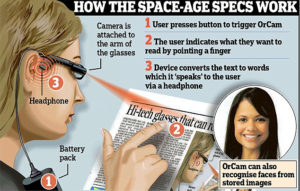
And she recently sent us an email in which she says “Earlier this month I receive the Orcam MyEye which you so kindly helped to fund. It’s something I knew would help me massively and without your help I would never have been able to get it. Since getting it I’ve been able to gain a level of independence that has already had such a strong impact on my day-to-day life. I wanted to write to you in order to say the biggest thank you. I am I honestly so very grateful to you for this and it has already had such an impact on my lifestyle that is solely due to your generosity…”
Daniel (June 2017)
Daniel is 19 years old. He has cerebral palsy, epilepsy, global developmental delay and chromosomal disorder. He is wheelchair bound and totally dependent on his family and carers for all aspects his daily life.
Daniel has no verbal communication but understands what is being said to him. He communicates through smiling and by having people close to him interpreting his behaviours and levels of movement/agitation.
Currently Daniel has access to a children’s hospice where his Occupational Therapist (OT) is helping with his transition for when he has to leave at the age of 21. They trialled the EyeGaze system to see if it could support Daniel as a communication tool and allow for skills development as well as enabling him to play and socialise through games and activities.
Daniel immediately understood how to interact with EyeGaze and showed evident enjoyment, concentration and understanding of cause and effect. Based on this, his family arranged to loan the system for one month to see if Daniel could engage with the system at home over a longer period of time.
With the help of his sister who personalised the system for his needs, Daniel was able to develop and improve his skills and this has been a very positive process for the family as a whole. His OT observed him using EyeGaze in his home environment and noticed he was playing more complicated cause and effect games and could pick out words and pictures to relay his choices to his family. She felt that continued use of EyeGaze would allow Daniel have more choice in his day to day activities and would enable him to further develop his skills.
Daniel was awarded a grant to fund the EyeGaze system.
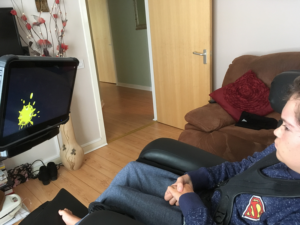
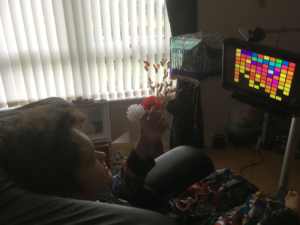
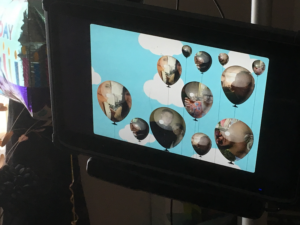
Daniel’s transition worker sent us this message: “This is Daniel using his eyegaze at home. Daniel enjoys lots of different games especially the games which they have personalised with his families faces, noisy and bright games. Daniel likes playing games on the eyegaze with the whole family, particularly with his sister.
The eyegaze allows Daniel to play independently as well as with his family. This is hugely important as he requires support from his family with all areas of his life.
Daniel uses the eyegze most days and is learning new skills as well as enjoying trying new games and activities. Having the eyegaze has helped Daniel keep busy and occupied and allowed him to be involved in activities with the whole family”.
Daniel says “Thank you for all your help and support in getting me an eye gaze computer”.
Charlie (May 2017)
Charlie is 4 years old. He is severely autistic, he has global development delay, significant special educational needs and is non verbal.
Charlie needs constant care and supervision for all aspects of his daily life. He is easily distressed and finds it difficult to interact with those around him.
His educational psychologist noted that, on occasions, Charlie managed to use apps on his support worker’s iPad. She has now recommended that he have one of his own with special applications as that would help him develop attention skills and enable him to make choices and communicate his preferences.
Charlie was awarded a grant to fund an iPad.
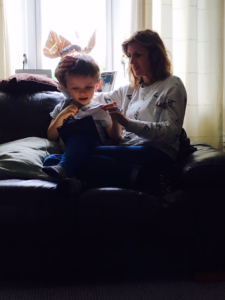
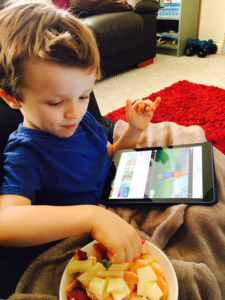
Charlie’s father sent us this message: “Charlie loves his i pad, and takes it everywhere with him, the first picture his him with his auntie as his using a communication app I think on his ipad and showing his auntie what he has on there and what he can do with it, and he communicates well with people he shows the app to, but only a few close family members, and the second picture was of Charlie this morning very cheekily watching peter rabbit whilst nobody was looking he likes the music it on it, and then he goes and finds the animals on a animal sound app he has, and laughs a lot.
We are most grateful for this wonderful ipad it has been a life saver in a some tricky situations, and Charlie is a very very lucky boy,
And we are very very grateful to you and your charity”
Asemah (May 2017)
Asemah has a rare condition called LOGIC syndrome which causes excessive growth tissue to develop in various areas including the larynx and eyes. This has resulted in breathing difficulties, speech impairment and severe visual impairment; she is registered blind.
Asemah wants to improve her quality of life and increase her independence. She loves to read and is currently doing a poetry workshop and also learning creative writhing.
She requires the Prodigi Connect (video magnifier and text to speech conversion) with a distance camera which will enable her to see objects around the house and on kitchen shelves, enabling her to become more independent.
Asemah was awarded a grant to help fund the Prodidgi Connect 12. Two others charities also provided grants.
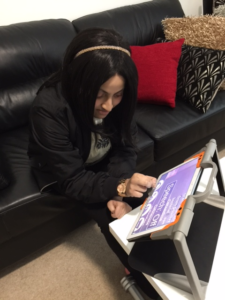
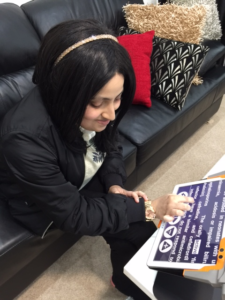
Asemah sent us this message: “I require high colour contrast, magnification and speech output to be able to read and navigate devices due to my limited sight. Therefore I could not use any other video magnifier as they had no voice guidance. The Prodigi Connect 12 was the ideal solution for me with its 12″ display allowing for greater magnification, the larger variety of colour schemes for high contrast, voice guidance to navigate through the options and most importantly reading mode to allow me to listen to my work / books.
I am still getting used to this new piece of equipment but it has great potential and benefit. I am very excited to explore its other features. I love its versatility and how I can use it in multiple situations e.g whilst baking, in poetry workshops or just reading at home.
I am so very grateful to the Janki Saye Foundation for choosing to support me as I was really struggling to gather the funds for this very expensive assistive technology. Janki Saye Foundation are very kind, understanding and hardworking charity.
Thank you very much to all the team.”
Reisy (November 2016)
Reisy is 5 years old. She has Global Developmental Delay, Dyspraxia and ADHD.
Due to her limited communication skills and uncertainty about how to respond, she presents difficult and challenging behaviour. It is felt that her frustration in not being able to express herself exacerbates the situation and results in tantrums.
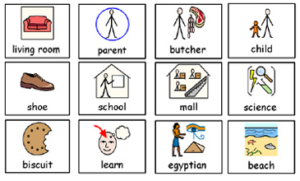
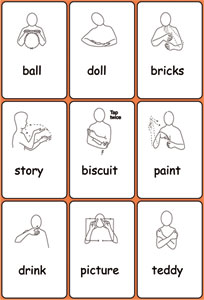
She is at as special school and teachers have identified a language program called Makaton which uses signs and symbols and will help make Reisy’s social and educational experiences more enjoyable. It will also help her develop her vocabulary so that she can ultimately improve her speech and language skills.
Reisy was awarded a grant to fund the Makaton symbols program.
Jordan (September 2016)
Jordan is 2 and a half years old and has a rare form of cancer (Childhood Central Nervous System Atypical Teratoid/Rhaboid Tumour). He will be in and out of hospital for the rest of his life.
This cancer has affected his ability to speak so the only way he can communicate with his family and hospital staff is using flash cards.
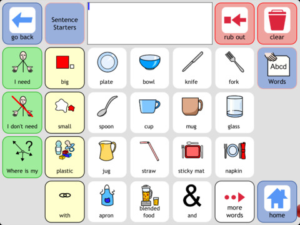
Jordan’s family wanted to give him the Grid 3 application to run on an iPad. The software can be personalised to his specific needs, enabling him to use his eyes or touch the screen to communicate with people around him.
Jordan was awarded a grant to fund the Grid 3 sofware (the iPad was donated by another charity).
Robyn (September 2016)
Robyn is 18 years old. She has Mosaic duplication (chromosome duplication) and Spina Bifida. She is wheelchair bound and has no functional verbal communication.
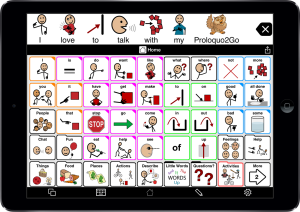
At school she was given the use of an iPad with the Prologuo2go communication application. This enabled her to do her school work and it also supported her social interaction.
As she was about to leave school and transition into a day care facility, her mother and teachers were very concerned that, without the iPad, she will no longer be able to communicate effectively. This would impact her ability to become more independent.
Robyn was awarded a grant to fund the iPad and the Prologuo2go app.
Robyn’s mother wrote us a letter in which she says “I would like to take this opportunity to say thank you on behalf of my daughter and myself for the iPad that has enabled Robyn to have a voice.
It has given Robyn independence to communicate with others, for example simple things like asking for a drink or what she wants to eat. She enjoys showing new people her new voice.
We are hoping she will go from strength to strength and use it more everyday.
Thank you”
Robyn’s Speech and Language Therapist (SALT) tells us “The iPad and app have allowed Robyn to access another means of communication. Robyn now has the opportunity to develop her skills of social communication in terms of telling others her opinions and feelings and commenting on things, which without the communication aid would perhaps be limited. Since receiving the communication aid, we are working alongside Robyn to program and organise the app, which Robyn is taking ownership of and thoroughly enjoying. Robyn is making such positive progress with navigating through the app in order to develop her communication skills. This is assisting her to develop her own voice by promoting confidence and increasing Robyn’s sense of identity”.
Kye (August 2016)
Kye is 9 years old. He is autistic, has learning disabilities, sight and hearing impairments, hyposensitivity disorder and asthma. He requires constant care, support and supervision.
The family is extremely isolated and only interact with others when absolutely necessary. Kye’s Occupational Therapist believed that an iPad with various apps would be beneficial to him as it would provide him with some independence and help develop his communication, fine motor and cognitive skills.
Kye was awarded a grant to fund an iPad.
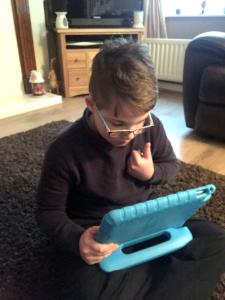
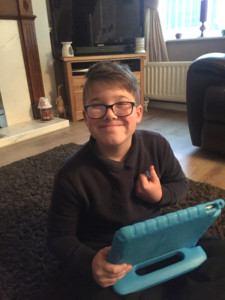
His mother sent us this message: “Since Kye has had the iPad he has developed vastly. He is much more confident and is beginning to try new things (even within his local community). His learning and speech have improved with him communicating with Siri for answers, which was just merely a dream 12 months ago.
Whilst we have a way to go, I am not able to thank you and the charity enough, for giving Kye a whole new chapter in his life. It may be only an iPad to some, but the learning and interaction it has given Kye is absolutely amazing, if not life changing.
Thank you from the bottom of our hearts”
Ethan (November 2016)
Ethan is 5 years old. He has global developmental delay and autistic spectrum disorder. He relies on an adult for all of his basic needs and, as he is still unable to express himself verbally, he communicates his needs by leading an adult by the hand.
He is at a special severe learning difficulties school where they have been encouraging him to communicate using an iPad with the Picture Exchange Communication System (PECS). They felt it would help Ethan’s development enormously if he were to have an iPad with PECS at home as it would help him communicate and interact with his family.
Ethan was awarded a grant to fund an iPad.
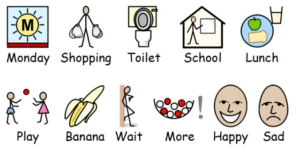
His mother sent us a message of thanks: “Thank you for the help your organisation gave us in getting Ethan an iPad.
Ethan has benefited immensely in having the iPad, we are currently trying to get Ethan used to PECs to support his communication and having the app on the iPad at home to replicate what he is doing at school is helping in Ethan’s understanding.
Ethan also suffers from anxiety in new environments or noisy places, before we were unable to attend social gatherings with Ethan due to this anxiety, with the iPad which also has his favourite learning apps and music he is now more at ease in social gatherings as he can use the iPad to distract himself from the situations around him until he feels confident enough to explore his surroundings.
The iPad has also helped Ethan’s skills in browsing and concentration on educational programs, he uses the Fisher Price children’s apps to learn numbers, letters and animals. He is also now able to listen to his favourite songs which calms him.
I look forward to the new skills that Ethan is learning from having the iPad . Thank you for changing our lives.”
David (November 2016)
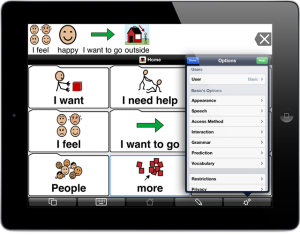
David is 8 years old. He has Angelman Syndrome, epilepsy, hyperactivity and sleep disorder. He is completely non-verbal and, because he cannot communicate his needs, he becomes frustrated which leads to him engaging in harmful activities such as hitting himself on his legs.
His speech and language therapists have recommended the use of the Prologuo2go communication app to help David make himself understood and to give him a voice, both at home and in the community.
David was awarded a grant to fund the Prologuo2go app.
Kinjal (June 2016)
Kinjal is 15 years old. She has muscular dystrophy and severe scoliosis which means she is profoundly disabled, but intellectually unimpaired. She is wheelchair bound and has to sit in a reclined position for most of the day as the scoliosis compromises her breathing and swallowing.
Kinjal is totally dependent on her mother for all her physical day to day needs such as bathing, eating and drinking.
Kinjal was awarded a grant to fund high end technology – Grid Pad Eye communication aid with MyGaze Tracking camera which will enable help her control her wheelchair, access her computer and enable her to complete her homework without the aid of her mother, who has to hold her books.
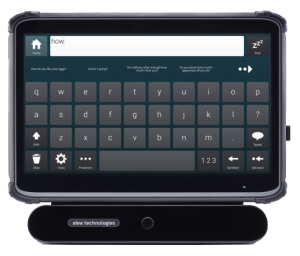
Kinjal sent us a message of thanks:
“Hello, my name is Kinjal and I am writing to thank you for funding my eye gaze equipment.
I am a 15 year old girl with muscular dystrophy who needs an adult’s help for all my daily tasks due to my physical condition.
I am really thankful to you for funding my eye gaze, dragon speech and other necessary bits. It will help me with my writing, doing my homework at home and lots of other things without an adult’s help all the time. You have made me more independent and confident with this device. This will be more beneficial for me because it will allow me to do my work in a tilting position, which is a better position for me to stay in. This will also help my scoliosis problem and help save my back from getting worse.
Thank you once again for trusting and providing this equipment to me. I am extremely grateful for what you have done and I hope you continue to help other children like me in the future.”
Henry (July 2016)
Henry is 5 years old. He has autistic spectrum disorder and global developmental delay. He is unable to care for himself, needs help to cut up his food and requires a special needs pushchair when outside. He lives in his old world and gets very upset when his routine changes.
Henry was awarded a grant to fund an iPad with special applications which will help him to communicate and learn motor skills.
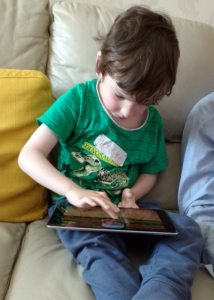

His mother wrote to thank us: “Henry and my family would like to say a huge thank you to the Janki Saye Foundation.
The summer holidays are a confusing time for Henry. Every day he forgets why he is not going to school. With the Social Stories Creator app we have been able to create a story with pictures to explain to Henry his new routine. PECS Phase III app has been instrumental in improving Henry’s communication skills. Often Henry is unable to find the words, but he is able to flick through the themed folders of images we created until showing us what he wants.
During the summer holidays it has also been extremely useful to give Henry the iPad when I need to occupy him while getting a house chore done, such as washing up or doing laundry. Henry especially enjoys using the Cbeebies app, Meet the Alphablocks, and All Aboard the Dinosaur Train.
I look forward to Henry’s school adding educational apps to aid Henry’s learning. Thank you again for this generous wonderful tool.”
Alfie (July 2016)
Alfie is a young man who suffered a severe traumatic brain injury following an assault in 2013. He has been in a brain injury centre since June 2014 and has received intensive neuro-rehabilitation for extensive physical and communication difficulties.
He use a wheelchair, has severe dysarthria and his speech is mostly unintelligible. He used a low tech alphabet chart to communicate in the beginning, and was managing with that but it proved difficult for his communication partner to follow what he was saying. He was then given the loan of an iPad with the Grid Player app installed and he used this very successfully around the centre and also out in the community.
Alfie was awarded a grant to fund an iPad with the Grid Player app and a wheelchair mount for use at home once he has been discharged from the brain injury centre.
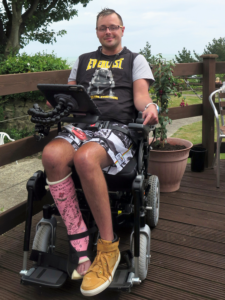
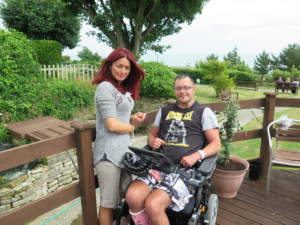
His Speech and Language Therapist (SLT), tells us “Alfie is getting on very well with his new iPad and is now finally able to clearly get his message across to any communication partner.
This is particularly important as he has now moved on from his inpatient rehabilitation to a residential home, and is hoping to soon move in with his partner and their baby boy, who was born in June.
Alfie is determined to continue working with the SLT to improve his speech clarity, but in the meantime he is very grateful to have the option to use his iPad to communicate all the important – and not so important – things he would like to say! Thank you very much for making this possible for him.”
Greg (July 2016)
Greg is a young adult who has visual impairment, learning difficulties, epilepsy and kidney failure. He is a wheelchair user and is non verbal making it difficult to communicate with the world around him.
Greg was awarded a grant to fund the Little Step By Step switch communicator which enables him to communicate with the people around him and helps to improve the quality of his life.
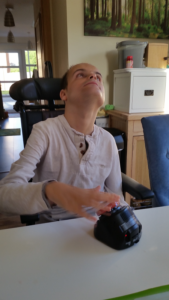
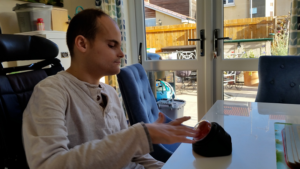
His mother writes “The Little Step By step switch purchased for Greg through the very generous technology grant from the Janki Saye Foundation has made a great difference to Greg’s daily life.
His old one was broken beyond repair and he could no longer record a message at his day services to bring home to us & we couldn’t record a message saying what he had been doing each evening and at the weekends for Greg to ‘tell’ at his day services….– he is great at understanding cause and effect and we use this a lot to help him communicate with his support workers and to help him experience and understand he can affect his environment.
Using the communicator gives him great pleasure and also teaches turn taking, which can again be used in other ways to help Greg engage with the world around him. Visual impairment can be a very lonely experience and very frustrating for Greg not to be able to communicate his needs and this switch goes a long way to keeping up his communication skills. It also gives us as parents a way to engage with Greg and to help us all to communicate better.”
Kyle (March 2016)
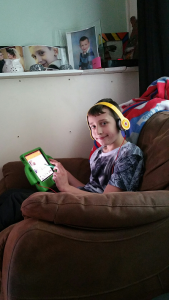
Kyle is 11 years old. He has language impairment, multi sensory disorder, autistic traits and learning difficulties. These conditions make his life difficult and hinder both his educational and social growth.
Kyle was awarded a grant to fund an iPad so that he can use assistive applications recommended by an educational psychologist and his speech and language therapist.
His mother writes “We want to thank you all for providing Kyle with the ipad, he has been able to use it to do his school work on, practice with his speech and language and boosting his confidence….you have made such a positive impact on Kyle’s life and future development.
Before kyle struggled doing his work as he can barely write, spell or draw, but that has all changed with the amazing apps on the ipad, he actually looks forward to learning now. We are very grateful for all that your charity does.”
Ian (June 2016)
Ian lost the sight in one eye following an accident at the age of 15. The vision in his other eye has since deteriorated and he is now registered blind. His sight loss affects every part of his day to day life and impacts his independence.
He had been employed in a workshop for the blind but lost his job 4 years ago when it closed down. Following that his wife died having been ill with cancer .
Ian now feels ready to return to work; he desperately wants to find a job but lacks the necessary skills.
While volunteering at an RNIB resource centre, Ian has learnt how to use a computer with software called Zoomtext that will enlarge and read out what is on the screen for him. He also uses a keyboard which has bold, high contrast letters on it. Ian gives up many hours to volunteer at the centre; he does a fantastic job of supporting other people who have lost their sight and is an asset to the team.
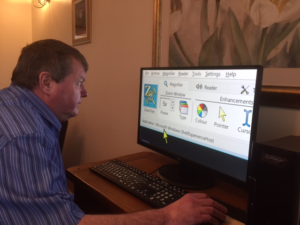
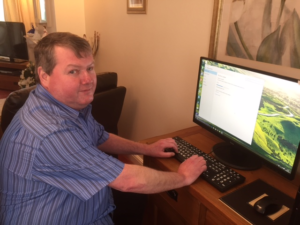
Ian was awarded a grant to fund a computer with the Zoomtext magnification software so that he can develop IT skills at home and also have access to email, online shopping and social media. This will all help to provide him with a degree of independence and become less isolated.
Ian sent us a letter of thanks in which he says “I would really like to thank the Janki Saye Foundation very much indeed for the grant you have provided for me for my computer, it means the world to me I cannot thank you enough.
Your help is invaluable to me without this computer and software zoom text I would not be able to use a computer, in my quest to gain employment. There is nothing that I would like more than to make the people who have supported me and also invested a lot of time in me over the last 12 months very proud. I would especially like to thank Suzanne for all her hard work in making this happen for me…and also the rest of the team at Action for Blind People in Hanley Stoke on Trent
I would just like to say your foundation really does change people’s lives please keep up the fantastic work so that more people like me can benefit from your hard work once again thank you very much indeed.
All the best
Many Thanks”
David (April 2016)
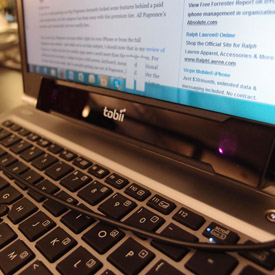
David has Multiple Sclerosis and his functional ability to use his hands to use a keyboard on a laptop/computer has declined. This means he is unable to use his computer which he requires to retain his independence in dealing with financial affairs, emails and social media.
David was awarded a grant (in partnership with the MS Society) to fund the PCEyeGo system which allows him to access his computer using his eyes.
The PCEyeGo technology has enabled David to regain his independence.
Jasmine (February 2016)
Jasmine is a young adult with a number of complex conditions, including selective mutism, autism, dyspraxia and dyslexia and anxiety disorder.
The selective mutism means that she is unable to communicate with others outside of her family home, and within the home she only communicates with her mother (who is her voice) and her sister.
Her condition makes her extremely vulnerable when she is outside her home and, without her mum, she is unable to tell anyone if she is hurt or in pain.


Jasmine was awarded a grant to fund the Prologuo2go communications software for her iPad.
Her mother wrote to thank us and told us this would make a huge difference to Jasmine. She says “the Prologuo2go will open up her world a little to help her communicate with her teachers & family members. We are sure it will give Jasmine the confidence to communicate in a way she feels comfortable”.
Harry (February 2016)
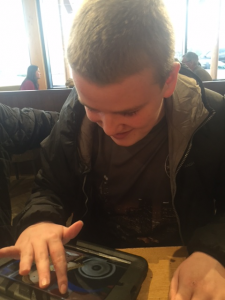
Harry is 13 years old. He has autism, global developmental delay, epilepsy and various other conditions.
This means he struggles with communication as he is non-verbal with the mental capability of a small child.
Harry was awarded a grant to replace his old iPad so that he could continue to watch his DVDs, which is his main pleasure, and to communicate with his family using the Prologuo2go communications software.
His mother thanked us saying “you have made a young man VERY happy indeed”
Jessica (January 2016)
You may already have heard about Jessica from our campaign news and video. She is a young adult who was born with Angelman syndrome, which causes developmental delay and lack of speech and also affects her co-ordination and cognitive functions.
We launched the campaign to raise enough money to provide Jessica with an EyeGaze machine which enables her to communicate and express herself using her eyes to control the cursor. With your support, we have raised £4,000 so far.
Having reassessed Jessica’s needs and capabilities, her mother decided that a solution using iPads and assistive communication software would go a long way to opening up Jessica’s world. So we awarded Jessica a grant of £2,000 to fund a sturdy iPad Pro with Prologuo2go for home use and an iPad mini with Go Talk Now, Pictello and Scene Speak which she can use when she is outside.
Update on Jessica (October 2017)
Patrick (June 2015)
“By having the Prodigi Duo 2 in 1 electronic magnifier it provides the foundation for seeking full employment and allows me as a visually impaired person to rebuild my confidence and reconstruct my life”.
Patrick is a professional building services design consultant engineer who worked on award winning projects including Imperial College Business School, Ealing Studios and the Madrid Law Courts. He was also very active in the community as a school governor and football coach.
In 2009 he suddenly lost his sight and became registered blind. He took ownership of his guide dog Rufus in 2013. He says that the suddenly loss of his sight left him devastated. And losing the ability to read led to further despair, anger and depression. He then became associated with the Digital Tuesday for Visually Impaired People (DTVIP) group at the local library where he was provided with the opportunity to turn despair into hope. He learnt to touch type and use computers and, after many years, he was again able to access email.
Patrick now volunteers with different R&D organizations in developing software and equipment for the visually impaired.
He tells us that the government provides An Access to Work grant to pay for practical support if you have a disability, health or mental health condition, but this grant is only available if you are already in employment, become self-employed or start a business.
As an unemployed visually impaired person, Patrick is not eligible for a government grant. This means that assistive technologies are off limits to him, creating a further barrier to seeking employment. He wants to re-join the ranks of the employed as a consultant but, as he goes to meetings and events, it is clear that he requires someone to accompany him to read documents or he has to have the papers transcribed to CD format which he then has to commit to memory in advance of the meeting.
Patrick was awarded a grant to fund a Prodigi Duo 2 in 1 (desktop and handheld) reading device which will enable him to access previously inaccessible materials such as job postings, research papers and specialist/reference books. The handheld device also stores documents which he can then take to meetings.
Patrick now has what he needs to achieve his goal of seeking employment so he can continue his work as a consultant and also help other visually impaired people.
